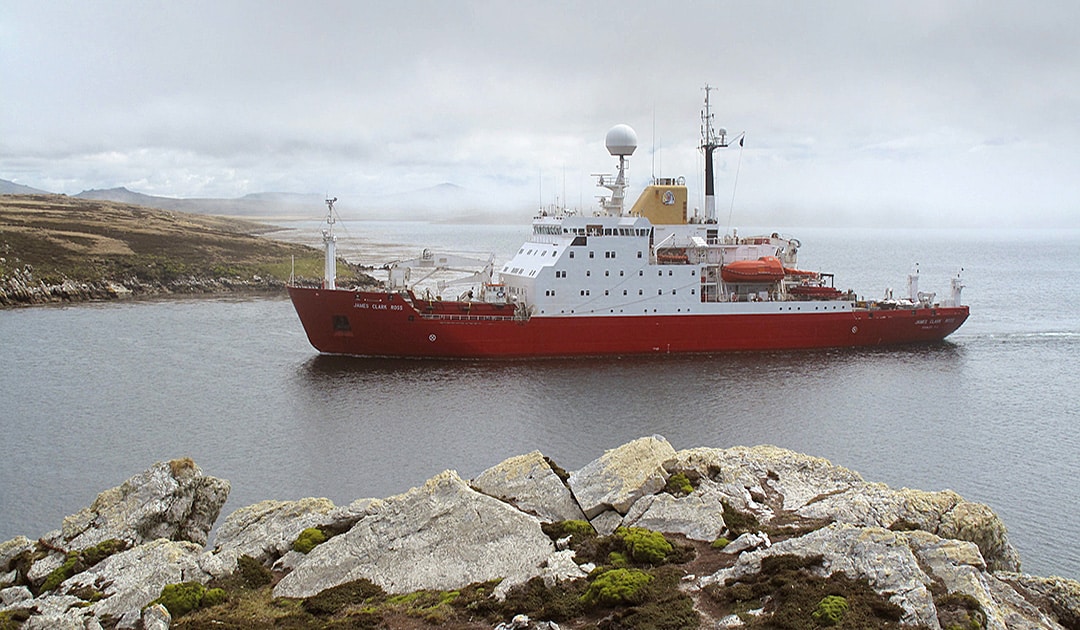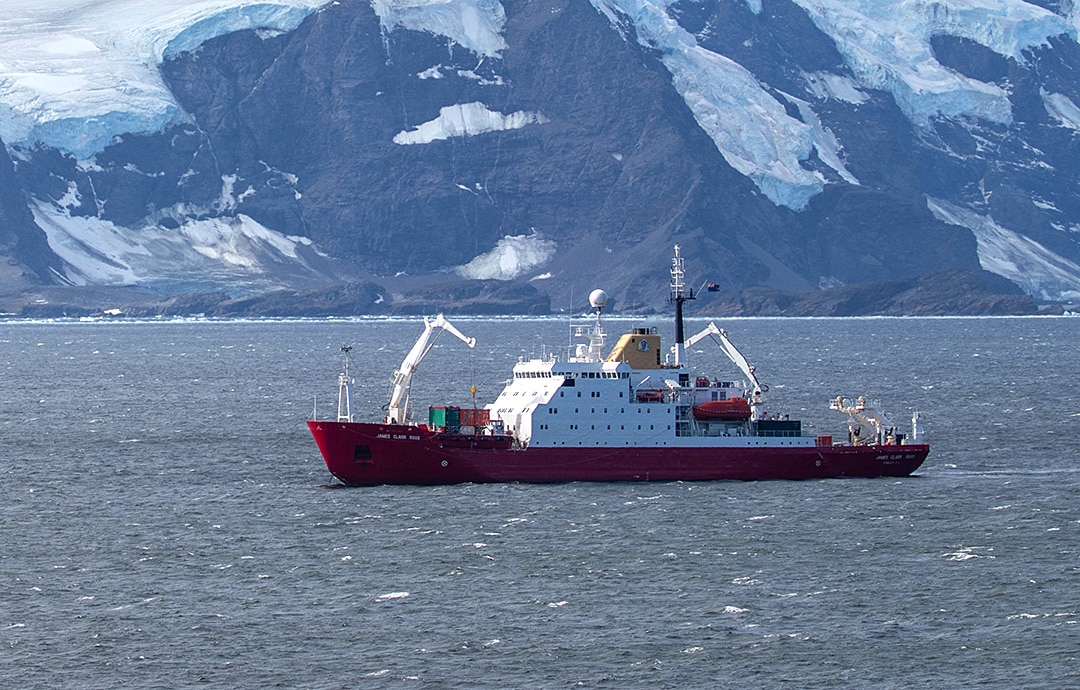
It is the end of a 30-year era for the British supply ship and icebreaker RRS “James Clark Ross”, which was on its last tour to supply research stations in Antarctica and is now on its way back to England. British Antarctic Survey (BAS) announced that the polar research vessel will be sold at the end of the 2020/2021 Antarctic season and replaced by the newly built RRS “Sir David Attenborough”.

RRS “James Clark Ross”, named after the 19th century British Royal Navy officer and polar explorer, was built by Swan Hunter Shipbuilders in Wallsend, UK, and commissioned in 1990. For the past three decades, the 99-metre-long ship has been a floating platform for biological, oceanographic and geophysical research. It contained some of the UK’s most modern facilities for oceanographic research in both the Antarctic and the Arctic.

The Falkland Islands was the final stop of the ship’s five-and-a-half-month mission to deliver scientific and operational personnel to Antarctica and resupply British stations in Antarctica for another year. The last season of RRS “James Clark Ross” was an exceptional operational challenge because of COVID-19.

Commenting on the departure of the RRS “James Clarc Ross”, the Governor of the Falkland Islands, Nigel Phillips, said: “The British Antarctic Survey has a worldwide reputation for its leading polar research and discovery. Since its inception in 1962, BAS has had a permanent presence in the Falkland Islands, as well as the Antarctic Peninsula, providing solid scientific evidence on which to base decisions on the environmental sustainability of our activities. The commissioning of the RRS “Sir David Attenborough” is a continuation of this commitment, but comes with the departure of an old friend. The RRS “James Clark Ross” may be retiring, but in her three decades of service she has achieved some extraordinary successes, such as the first mapping of the deepest part of the South Sandwich Trench. The launch of the autonomous underwater vehicle “Boaty McBoatface” is also memorable. As a maritime nation, I know that Falklanders are used to seeing ships come and go, but those undertaking polar expeditions are a particularly welcome sight on these shores.”
Heiner Kubny, PolarJournal
More on the subject:





